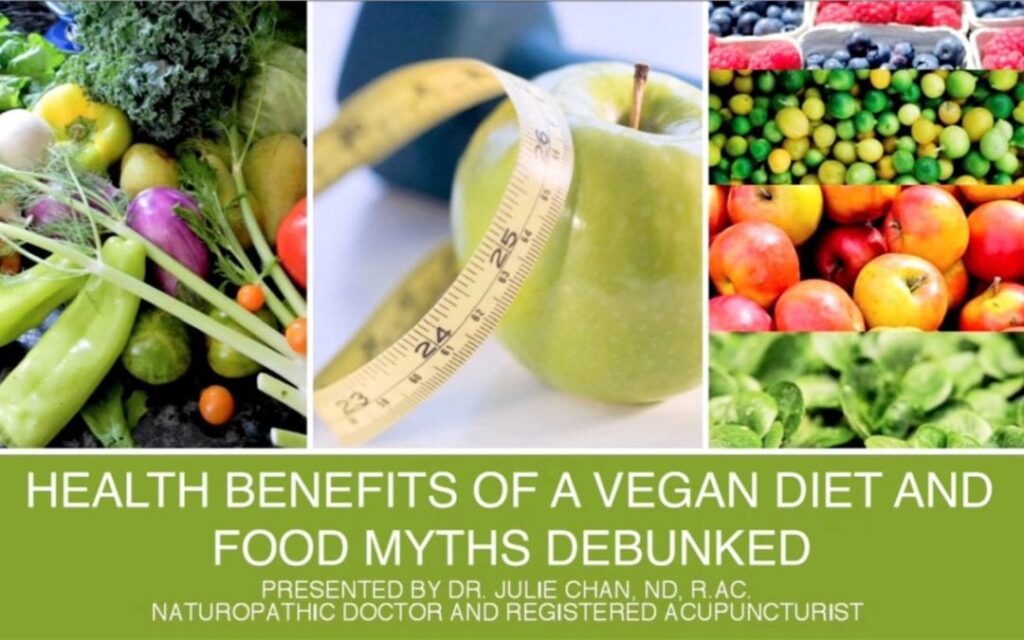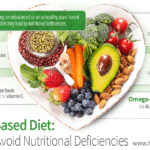Explore groundbreaking research and Explosive Discoveries that challenge common misconceptions about vegetarian diets and their impact on health.
1. Protein Deficiency Is Rare Among Vegetarians
Contrary to popular belief, vegetarians can easily meet their protein needs through plant-based sources. Studies have shown that well-planned vegetarian diets provide adequate protein without the need for animal products. Source
2. Plant-Based Diets Can Lower Blood Pressure
Research indicates that vegetarian diets are associated with lower blood pressure levels. A study published in the Journal of Hypertension found that individuals following plant-based diets had significantly lower blood pressure compared to those consuming omnivorous diets. Source
3. Vegetarian Diets May Reduce Cancer Risk
Evidence suggests that vegetarian diets are linked to a lower risk of certain cancers. A comprehensive review published in PLOS One concluded that plant-based diets are effective in lowering the risk of cardiovascular diseases and cancer. Source

4. Bone Health Can Be Maintained Without Dairy
While dairy is a common source of calcium, vegetarians can obtain sufficient calcium from plant-based foods such as leafy greens, tofu, and fortified plant milks. A study published in Nutrition Reviews found that vegetarians have similar bone mineral density compared to non-vegetarians. Source
5. Omega-3 Fatty Acids Are Available in Plant Sources
Vegetarians can obtain omega-3 fatty acids from plant-based sources like flaxseeds, chia seeds, and walnuts. A review published in Prostaglandins, Leukotrienes and Essential Fatty Acids highlighted that vegetarians have adequate levels of omega-3s when consuming these plant sources. Source
6. Plant-Based Diets Can Support Muscle Growth
Contrary to the myth that vegetarians cannot build muscle, plant-based diets provide sufficient protein and nutrients to support muscle growth. A study published in the Journal of the International Society of Sports Nutrition found that vegetarian athletes have comparable muscle mass and strength to their omnivorous counterparts. Source
7. Vegetarian Diets Can Aid in Weight Management
Adopting a vegetarian diet can contribute to weight loss and maintenance. A study published in Obesity Reviews found that individuals following vegetarian diets had lower body mass indexes compared to those consuming omnivorous diets. Source
8. Plant-Based Diets Are Environmentally Sustainable
Vegetarian diets have a lower environmental impact compared to meat-based diets. A study by the Loma Linda University found that plant-based diets contribute to reduced greenhouse gas emissions and resource conservation. Source
9. Vegetarian Diets Can Improve Gut Health
Plant-based diets are rich in fiber, which promotes healthy digestion and gut microbiota. A study published in Frontiers in Nutrition found that vegetarian diets positively influence gut health by increasing beneficial bacteria. Source
10. Vegetarian Diets Can Enhance Longevity
Adopting a vegetarian diet is associated with increased life expectancy. A study published in The American Journal of Clinical Nutrition found that vegetarians had a lower risk of mortality from all causes compared to non-vegetarians. Source
11. Vegetarian Diets Are Cost-Effective
Contrary to the belief that vegetarian diets are expensive, plant-based foods such as beans, lentils, and grains are affordable and nutritious. A study published in the Journal of Hunger & Environmental Nutrition found that vegetarian diets are cost-effective compared to meat-based diets. Source
12. Vegetarian Diets Can Be Safe During Pregnancy
With proper planning, vegetarian diets can meet the nutritional needs during pregnancy. A study published in Nutrition Reviews found that vegetarian diets provide adequate nutrients for fetal development when supplemented appropriately. Source
For more information on vegetarian nutrition and health, visit the Academy of Nutrition and Dietetics.
The Hidden Role of Antioxidants in Vegetarian Diets
Vegetarian diets often contain high levels of antioxidants from fruits, vegetables, and whole grains. These antioxidants combat oxidative stress, reduce inflammation, and may protect against chronic diseases. Failing to include a variety of colorful produce can limit these benefits.
Addressing Micronutrient Bioavailability
Many plant-based nutrients are not absorbed as efficiently as those from animal sources. For example, non-heme iron from plants requires vitamin C for better absorption. Understanding nutrient bioavailability is crucial to prevent deficiencies.
The Impact of Vegetarian Diets on Hormonal Health
Vegetarian diets rich in phytoestrogens from soy and flaxseed can influence hormonal balance. While beneficial for some conditions, excessive intake may affect thyroid function or menstrual cycles in sensitive individuals.
Vegetarian Diets and Cognitive Function
Emerging research suggests that insufficient B12, iron, or omega-3 fatty acids in vegetarian diets may impact cognitive function. Ensuring adequate intake of these nutrients is essential for memory, focus, and overall brain health.
The Role of Legumes in Gut Microbiome Diversity
Legumes are a key component of vegetarian diets that nourish beneficial gut bacteria. Including a variety of beans, lentils, and chickpeas promotes microbiome diversity, which supports digestion, immunity, and metabolic health.
Understanding Anti-Nutrients in Plant Foods
Compounds like phytates and oxalates in certain plant foods can inhibit mineral absorption. Cooking, soaking, or fermenting these foods enhances nutrient availability and prevents hidden deficiencies in vegetarian diets.
Vegetarian Diets and Blood Sugar Regulation
Plant-based diets high in whole grains, legumes, and fiber can improve insulin sensitivity and blood sugar control. However, overconsumption of refined carbs or sugary vegetarian snacks may counteract these benefits.
Seasonal Eating for Maximum Nutrient Intake
Eating seasonal fruits and vegetables ensures higher nutrient density and flavor. Ignoring seasonal produce may reduce the nutritional quality of a vegetarian diet and limit exposure to diverse phytonutrients.
The Connection Between Vegetarian Diets and Inflammation
Vegetarian diets are generally anti-inflammatory due to high levels of antioxidants and fiber. Yet, diets relying heavily on processed plant-based foods may promote inflammation due to added sugars and refined oils.
Supporting Eye Health on a Vegetarian Diet
Vegetarian diets rich in carotenoids (like beta-carotene and lutein) support eye health and may reduce the risk of age-related macular degeneration. Failing to include colorful vegetables and fruits can limit these protective effects.
The Importance of Hydration in High-Fiber Diets
Vegetarian diets tend to be high in fiber, which requires sufficient water intake to prevent digestive discomfort, constipation, and nutrient malabsorption. Ignoring hydration can undermine the health benefits of a plant-based diet.
Adapting Vegetarian Diets for Aging Adults
Aging adults following vegetarian diets need to monitor calcium, vitamin D, B12, and protein intake to maintain bone density and muscle mass. Adjustments in portion sizes and fortified foods can prevent age-related deficiencies.
Vegetarian Diets and Cardiovascular Health
Plant-based diets can lower cholesterol, reduce blood pressure, and decrease the risk of heart disease. However, neglecting whole-food choices and relying on processed alternatives may diminish these cardiovascular benefits.
The Role of Fermented Foods in Vegetarian Diets
Fermented foods like kimchi, sauerkraut, and tempeh provide probiotics that support gut health, immunity, and nutrient absorption. Neglecting these foods can limit the microbiome benefits of a vegetarian diet.
Balancing Sodium Intake in Plant-Based Diets
Vegetarians may consume high amounts of sodium through processed plant-based products or condiments. Excess sodium can negate the cardiovascular benefits of a plant-based diet and contribute to hypertension.
The Overlooked Impact of Vegetarian Diets on Hormonal Balance
Vegetarian diets are rich in phytoestrogens found in soy, flax, and other plant-based foods. While these compounds can provide protective benefits against hormone-related cancers and menopausal symptoms, excessive intake without careful balance may alter thyroid function or disrupt menstrual cycles in sensitive individuals. Ensuring variety and moderation in phytoestrogen-rich foods is essential for maintaining optimal hormonal health while enjoying the benefits of a plant-based lifestyle.
Long-Term Effects of Vegetarian Diets on Bone Density
Many assume vegetarians are at higher risk for osteoporosis due to the exclusion of dairy. However, research suggests that with sufficient calcium from fortified plant milks, tofu, almonds, and leafy greens, and adequate vitamin D exposure, bone mineral density can be maintained long-term. Including weight-bearing exercises and monitoring nutrient intake are critical to prevent age-related bone loss while following a vegetarian diet.

Micronutrient Timing and Its Importance in Vegetarian Diets
Vegetarian diets provide abundant vitamins and minerals, but timing of intake can influence absorption. For instance, non-heme iron is best absorbed when paired with vitamin C-rich foods, while calcium may inhibit iron absorption if consumed simultaneously. Strategic meal planning, such as separating high-calcium foods from iron-rich meals, ensures maximum nutrient utilization, reducing the risk of deficiencies over time.
The Role of Antioxidants in Reducing Chronic Disease Risk
Plant-based diets naturally provide high levels of antioxidants such as vitamin C, vitamin E, carotenoids, and polyphenols. These compounds combat oxidative stress, reduce inflammation, and protect against chronic diseases including cardiovascular disease, diabetes, and certain cancers. To maximize benefits, vegetarians should include a wide variety of colorful fruits, vegetables, and whole grains, emphasizing diversity over repetition.
Vegetarian Diets and Cognitive Function Across the Lifespan
Nutrient deficiencies like B12, iron, and omega-3 fatty acids in vegetarian diets can influence cognitive performance, memory retention, and mood. Long-term adherence without careful planning may contribute to subtle cognitive decline in older adults. Incorporating fortified foods, algae-based omega-3 supplements, and iron-rich plant foods can help mitigate these risks and support healthy brain function throughout life.
The Hidden Benefits of Fermented Foods in Vegetarian Lifestyles
Fermented foods such as kimchi, sauerkraut, tempeh, and miso are rich in probiotics, which enhance gut microbiome diversity, improve digestion, and boost immunity. Despite the emphasis on plant-based diets, many vegetarians overlook fermented foods, missing an opportunity to support gut health and nutrient absorption, which can have long-term impacts on overall wellness.
Vegetarian Diets and Cardiovascular Health: What Science Reveals
Extensive research shows that well-planned vegetarian diets can significantly lower blood pressure, reduce LDL cholesterol levels, and decrease the risk of heart disease. However, the benefits are often reduced when diets rely heavily on processed meat alternatives, fried foods, or refined grains. Emphasizing whole foods like legumes, whole grains, vegetables, nuts, and seeds ensures cardiovascular protection while maintaining heart-healthy eating habits.
High-Fiber Diets: Balancing Digestive Health and Nutrient Absorption
Vegetarian diets are naturally high in fiber, which promotes healthy bowel movements and supports a diverse gut microbiome. However, sudden increases in fiber intake without adequate hydration can lead to bloating, gas, and discomfort. Over time, excessive fiber may also interfere with the absorption of minerals such as iron, zinc, and calcium. Gradual adaptation, paired with adequate fluid intake, ensures optimal digestive health while preventing nutrient deficiencies.
Plant-Based Protein Diversity and Muscle Health
Protein quality is often questioned in vegetarian diets. While plant proteins may lack certain essential amino acids individually, combining foods like beans, lentils, nuts, seeds, and whole grains ensures complete amino acid intake. This approach supports muscle repair, metabolic function, and athletic performance. Vegetarians engaging in strength training or high-intensity exercise should pay attention to protein timing and diversity to maximize muscle growth and recovery.
Impact of Vegetarian Diets on Eye Health
Carotenoids, lutein, and zeaxanthin found in leafy greens, orange vegetables, and fruits are essential for protecting eye health and reducing the risk of age-related macular degeneration. Vegetarians who fail to include a variety of colorful produce may miss these protective compounds. Including dark leafy greens, bell peppers, carrots, and squash ensures that the eyes receive essential nutrients for long-term health.
Hydration: The Forgotten Element in Vegetarian Nutrition
High-fiber vegetarian diets increase the body’s water requirements. Dehydration can lead to constipation, low energy, and reduced nutrient absorption. Vegetarians often overlook adequate hydration, undermining the benefits of their diet. Drinking water consistently throughout the day and consuming hydrating foods like fruits and vegetables are essential for maintaining optimal health.
Vegetarian Diets and Weight Management
Vegetarian diets often contribute to lower body weight due to high fiber intake and low-calorie density. However, overconsumption of calorie-dense nuts, seeds, oils, and processed vegetarian foods can lead to unintended weight gain. Proper portion control, balanced macronutrient intake, and mindful eating practices are crucial to achieve and maintain healthy body weight while following a plant-based diet.
The Environmental and Ethical Dimensions of Vegetarian Eating
Beyond personal health, vegetarian diets can significantly reduce carbon footprint, water usage, and land exploitation. Research shows that plant-based diets contribute to environmental sustainability and ethical food production. However, failing to source seasonal, local, or minimally processed foods may reduce these environmental benefits. Conscious choices in sourcing and food preparation maximize both health and ecological advantages.
Vegetarian Diets for Aging Populations
As people age, nutrient requirements change. Older adults following vegetarian diets must ensure adequate intake of calcium, vitamin D, B12, and protein to prevent osteoporosis, muscle loss, and cognitive decline. Incorporating fortified foods, supplements when necessary, and nutrient-dense plant-based options is essential for maintaining vitality and independence in later years.
Monitoring Emotional Wellbeing Through Diet
Nutrient deficiencies in vegetarian diets, especially omega-3 fatty acids, B12, and iron, can influence mood, energy, and mental health. Vegetarians who do not track nutrient intake may experience fatigue, irritability, or depression. Regular nutrient monitoring, balanced meals, and supplementation when needed can support mental well-being alongside physical health.
Frequently Asked Questions About Explosive Discoveries in Vegetarian Health
What are some of the most important explosive discoveries in vegetarian nutrition?
Recent explosive discoveries in vegetarian nutrition reveal that well-planned plant-based diets can provide all essential nutrients, support heart health, and even reduce the risk of certain cancers.
How do explosive discoveries challenge the belief that vegetarians lack protein?
Explosive discoveries show that vegetarians can obtain sufficient protein from legumes, tofu, tempeh, nuts, seeds, and whole grains without relying on animal products.
Can explosive discoveries help improve cardiovascular health in vegetarians?
Yes, explosive discoveries indicate that plant-based diets can lower LDL cholesterol, reduce blood pressure, and decrease the risk of heart disease when focused on whole, minimally processed foods.
Do explosive discoveries show that vegetarians have a lower risk of certain cancers?
Research-backed explosive discoveries suggest that vegetarian diets rich in fruits, vegetables, and whole grains are associated with a lower risk of colorectal, prostate, and breast cancers.
How do explosive discoveries impact bone health perceptions in vegetarians?
Explosive discoveries show that adequate calcium and vitamin D from plant sources or fortified foods can maintain bone density, dispelling myths that dairy is necessary for strong bones.
Are omega-3 deficiencies a concern according to explosive discoveries?
Explosive discoveries reveal that omega-3 fatty acids can be effectively obtained from flaxseeds, chia seeds, walnuts, and algae-based supplements, reducing deficiency concerns.
Do explosive discoveries support vegetarian diets for athletes?
Yes, explosive discoveries indicate that vegetarian athletes can build muscle, maintain endurance, and achieve comparable performance to omnivores when protein and micronutrients are carefully planned.
How do explosive discoveries affect mental health considerations in vegetarians?
Explosive discoveries highlight that deficiencies in B12, iron, or omega-3s may influence mood and cognitive function, but careful dietary planning can prevent these issues.
Are processed vegetarian foods safe according to explosive discoveries?
Explosive discoveries show that overconsumption of processed plant-based foods may reduce health benefits, emphasizing the importance of whole, nutrient-rich plant foods.
How do explosive discoveries support weight management in vegetarian diets?
Explosive discoveries reveal that high-fiber, nutrient-dense plant foods help maintain healthy body weight, but portion control remains important to avoid excess calories.
Do explosive discoveries recommend fortified foods for vegetarians?
Yes, explosive discoveries emphasize the role of fortified plant milks, cereals, and nutritional yeast in preventing deficiencies, especially for B12 and vitamin D.
Can explosive discoveries guide gut health in vegetarians?
Explosive discoveries show that including fermented foods and diverse fiber sources promotes a healthy gut microbiome, aiding digestion and immunity.
Do explosive discoveries support vegetarian diets for pregnancy?
Explosive discoveries indicate that with careful planning, vegetarian diets can provide adequate nutrients for both mother and baby, supporting fetal development and maternal health.
How do explosive discoveries influence longevity in vegetarians?
Explosive discoveries reveal that vegetarian diets rich in antioxidants and fiber are linked to increased lifespan and reduced risk of chronic diseases.
Do explosive discoveries show environmental benefits of vegetarian diets?
Yes, explosive discoveries confirm that plant-based diets reduce greenhouse gas emissions, conserve water, and require less land compared to meat-heavy diets.
Are antioxidants a key part of explosive discoveries in vegetarian diets?
Explosive discoveries highlight that antioxidants from fruits, vegetables, and whole grains combat oxidative stress, reduce inflammation, and support long-term health.
Can explosive discoveries help prevent anemia in vegetarians?
Explosive discoveries show that pairing plant-based iron sources with vitamin C-rich foods enhances absorption, reducing the risk of anemia without relying on animal products.
Do explosive discoveries address cognitive decline in vegetarians?
Explosive discoveries suggest that adequate intake of B12, omega-3s, and iron supports cognitive health, potentially preventing memory loss and mental fatigue.
Are explosive discoveries relevant for older adults following vegetarian diets?
Yes, explosive discoveries indicate that older adults should monitor calcium, vitamin D, and protein intake to maintain bone strength and muscle mass as part of a healthy vegetarian diet.
How do explosive discoveries impact social perceptions of vegetarian diets?
Explosive discoveries challenge misconceptions that vegetarian diets are insufficient, demonstrating that plant-based diets can be nutritionally complete and support optimal health.
Can explosive discoveries prevent deficiencies in vegetarian children?
Explosive discoveries emphasize balanced meals with fortified foods, iron, calcium, and protein to support growth and prevent deficiencies in vegetarian children.

Do explosive discoveries suggest vegetarian diets are suitable for athletes?
Yes, explosive discoveries show that with proper planning, vegetarian athletes can meet energy, protein, and micronutrient needs for peak performance and recovery.
How do explosive discoveries guide hydration for vegetarians?
Explosive discoveries highlight that high-fiber vegetarian diets increase water requirements, and proper hydration supports digestion, nutrient absorption, and overall health.
Do explosive discoveries show that plant-based diets can reduce inflammation?
Yes, explosive discoveries reveal that anti-inflammatory compounds in fruits, vegetables, nuts, and seeds help lower inflammation and protect against chronic diseases.
Can explosive discoveries improve dietary planning for vegetarians?
Explosive discoveries suggest that monitoring nutrient intake, including fortified foods and diverse protein sources, ensures a balanced, healthy, and sustainable vegetarian diet.





